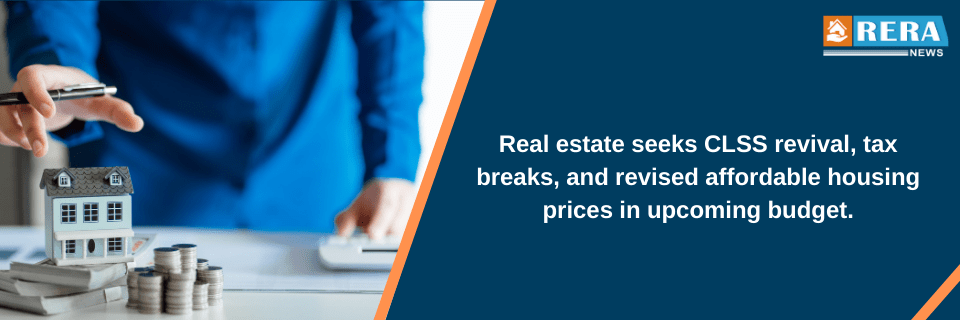
As the Union Budget is set to be presented on July 23, the real estate sector is voicing several key expectations aimed at stimulating growth and ensuring sustainability. Industry leaders are calling for a series of measures to boost demand, enhance supply, and promote a healthier real estate environment.
Anuj Puri, Chairman of ANAROCK Group, has highlighted the need for the revival of the Credit-linked Subsidy Scheme (CLSS) under the Pradhan Mantri Awas Yojana (PMAY). The scheme, which expired in 2022, provided subsidies for Economically Weaker Sections (EWS) and Low-Income Groups (LIG) purchasing affordable homes. "Reviving this scheme would invigorate demand among first-time homebuyers," Puri stated.
The sector is also advocating for the reinstatement of the 100% tax holiday under Section 80-IBA of the Finance Act, 2016. This would provide significant relief on profits earned from affordable housing projects, thus encouraging developers to focus on this segment.
A revision of the definition of affordable housing is also on the agenda. Puri suggests increasing the price cap from ₹45 lakh to ₹85 lakh in Mumbai and to ₹60-65 lakh in other major cities. This adjustment would allow more homes to qualify as affordable, enabling buyers to benefit from lower GST rates, government subsidies, and other incentives.
The current GST rate of 12% without input tax credit (ITC) is viewed as a barrier for buyers of under-construction properties. The industry is urging the government to either reduce this rate or reinstate ITC to make these properties more appealing and affordable.
In addition, the introduction of a single-window clearance system for real estate projects is being proposed. This system would streamline approvals and clearances, significantly reducing project delays and enhancing the ease of doing business.
Enhancing tax benefits under Section 24(b) (interest on home loans) and Section 80EEA (additional deduction for interest on home loans for first-time buyers) is another key expectation. Increasing the deduction limits would make home loans more affordable and encourage investments in the real estate sector, particularly in affordable housing.
Promoting green and sustainable housing through tax incentives and subsidies is also on the industry's wishlist. This would address environmental concerns while fostering innovation in the construction sector, including tax rebates for developers adopting eco-friendly practices and for buyers investing in energy-efficient homes.
Granting infrastructure status to the real estate sector would enable developers to access funds at lower interest rates and benefit from other financial advantages. This status would streamline regulatory processes and improve overall project viability.
The hospitality sector is similarly looking forward to the Union Budget with hopes for tax reductions, infrastructure development, and enhanced tourism promotion. Industry leaders are seeking reduced GST, funding for skills development, and incentives for sustainable tourism. Granting industry status to hospitality would simplify rules, provide tax breaks, and facilitate better access to capital, driving growth in this vital sector.
Anshuman Magazine, Chairman & CEO of CBRE India, South-East Asia, Middle East & Africa, recommends increasing the tax deduction limit from ₹1.5 lakh to ₹4 lakh per annum and moving it out of Section 80C. He also suggests reintroducing tax incentives for real estate investment trusts (REITs) and reviving the additional I-T deduction under Section 80EEA for first-time homebuyers.
"With rising residential unit prices, increasing the limit from ₹1.5 lakh to at least ₹4 lakh per annum is essential," Magazine stated. He also noted that tax deductions should be moved out of Section 80C to avoid competition with other critical instruments like life insurance and PPF.
Magazine further advocates reducing the capital gains tax rate from 20%, lowering the holding period for properties from 24 to 12 months, and removing the ₹2 crore cap on capital gains for reinvesting in two properties. Extending the completion period for under-construction properties by at least a year would also provide relief against disruptions.
Expanding the criteria for affordable housing, particularly in metro cities where higher unit sizes and prices are necessary, is another key recommendation.
© 2023 Rera News. All rights reserved.